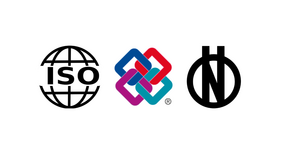What is IFC?
IFC is an abbreviation for Industry Foundation Classes.
It is an open interface format for construction and operations management. Since 1995, buildingSMART International has been developing IFC as part of the openBIM standard. Since 2013, IFC has been an official ISO standard with ISO 16739 and is regularly updated with this standard.
IFC is primarily used for the exchange and coordination of planning information. Planning content is used as an IFC specialised model for each trade. Specialist models contain the trade-specific specialist information. During the planning and execution phases, these specialised models are used for BIM quality assurance (model coordination). The IFC format also supports simulations (4D), quantity and mass calculations (5D), digital inventory and transfer of operationally relevant data (6D, 7D).
The advantages of using specialised models not in their native format, i.e. in the respective format of the authoring software, but in the independent IFC format are
- Independence from authoring software (e.g. versioning)
- Long-term applicability (supported by ISO standardisation)
- Self-sufficiency and transparency of the information available in the specialised models
The IFC data structure (i.e. element classes such as "wall" and the associated characteristics such as "fire compartmentalising") is specified as an international standard. However, it allows for individual additions, depending on the requirements of clients, planners and operators. Specifications of this kind are set out in the BIM regulations.
The open idea behind the openBIM method is essentially supported by the IFC. Planners, contractors and operators are not tied to one authoring software, but can use the one that is best for them. IFC serves as a kind of language that is spoken by all certified software.
Text source: ODE
Image source: ISO logo, buildingSMART logo, ÖNorm logo
Is your software IFC certified? CHECK HERE
